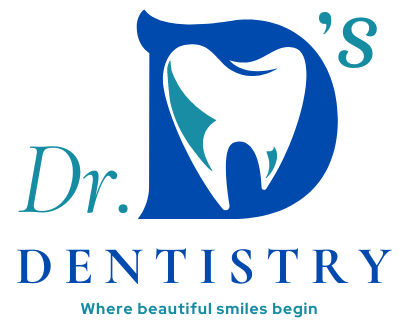Introduction
Pregnancy brings about many changes to your body, some more obvious than others. While you might be focusing on your growing belly, swollen feet, or even that pregnancy glow, it’s essential not to forget about one critical part of your health: your smile. Your oral health plays a crucial role in your overall well-being during pregnancy, and taking care of your teeth and gums can help prevent complications for both you and your baby. In this article, we’ll explore how pregnancy affects your teeth and gums, and what you can do to keep your smile bright and healthy.
Understanding the Impact of Pregnancy on Oral Health
Pregnancy can significantly affect your oral health due to the hormonal changes that your body undergoes. The increase in hormones such as estrogen and progesterone can lead to heightened sensitivity in your gums, making them more prone to inflammation and infection. This can result in pregnancy gingivitis, a common condition characterized by swollen, tender, and bleeding gums. It’s crucial to pay close attention to your oral hygiene during this time to avoid any long-term dental issues.
Common Dental Issues During Pregnancy
Pregnancy Gingivitis
One of the most common oral health issues pregnant women face is pregnancy gingivitis. This condition is usually caused by an increased inflammatory response in the gums due to hormonal changes. Symptoms include red, swollen gums that bleed easily, especially when brushing or flossing. Left untreated, pregnancy gingivitis can progress to more severe gum disease.
Tooth Decay
Pregnancy increases the risk of tooth decay for your smile reasons. Morning sickness, with its frequent vomiting, exposes your teeth to stomach acid, which can erode enamel. Additionally, cravings for sugary snacks and the challenge of maintaining a consistent oral hygiene routine due to fatigue can contribute to cavities.

Pregnancy Tumors
Although they sound alarming, pregnancy tumors (pyogenic granulomas) are benign growths that appear on the gums. They’re typically painless but can cause discomfort or bleeding when brushing. They usually disappear after pregnancy but should be evaluated by a dentist if they persist.
How to Maintain Healthy Teeth During Pregnancy
1. Brush Twice Daily
Maintaining a consistent brushing routine is more your smile than ever during pregnancy. Brush your teeth twice a day using a soft-bristled toothbrush and fluoride toothpaste. Be gentle on your gums to prevent irritation.
2. Floss Daily
Flossing helps remove plaque and food your smile from between your teeth, which can reduce your risk of gum disease. Since your gums may be more sensitive during pregnancy, floss carefully to avoid excessive bleeding.
3. Rinse After Morning Sickness
If you experience morning sickness, it’s essential to protect your teeth from stomach acid. Instead of brushing your smile after vomiting, rinse your mouth with water or a your smile of water and baking soda to neutralize the acid. Brushing right after vomiting can spread the acid and cause further enamel erosion.
4. Choose a Healthy Diet
Eating a well-balanced diet supports not only your baby’s development but also your oral health. Foods rich in calcium, like dairy products and leafy greens, help strengthen your teeth. Avoid sugary snacks, which can lead to cavities, and opt for healthier alternatives like fruits, nuts, and whole grains.
5. Stay Hydrated
Drinking plenty of water helps keep your mouth clean and reduces the risk of dry your smile, a condition that can increase the chances of tooth decay. Water also helps wash away food particles and neutralizes acids in your mouth.
The Importance of Regular Dental Visits During Pregnancy
Visiting your dentist regularly during pregnancy is key to maintaining good oral health. Inform your dentist that you’re pregnant, as certain treatments and your smile may need to be adjusted. Here’s what you should expect:
Dental Checkups
Routine dental checkups are safe during pregnancy and should not be skipped. The second trimester is generally considered the best time for any necessary dental work. During your visit, your dentist can monitor your gums for signs of pregnancy gingivitis and recommend treatments or preventive measures.
Cleanings and Preventive Care
Professional cleanings can help remove plaque and tartar buildup, reducing the risk of gingivitis and cavities. Preventive care is crucial during pregnancy to ensure that your oral health your smile stable.
Safe Dental Procedures
Most dental procedures, including cleanings and fillings, are safe during your smile. However, your dentist may delay non-urgent treatments until after your baby is born. If X-rays are needed, special precautions will be taken to protect you and your baby.
Dealing with Gum Sensitivity and Bleeding
Gum sensitivity and bleeding are common during pregnancy, but there are ways to manage these symptoms. Switching to a softer toothbrush, using toothpaste for sensitive teeth, and rinsing with an alcohol-free mouthwash can help soothe your gums. If your gums bleed excessively, consult your dentist for further advice.
Avoiding Harmful Substances
Tobacco and Alcohol
It’s well-known that tobacco and alcohol should be avoided during pregnancy for your baby’s health. However, they also have significant negative effects on your oral health. Smoking can increase the risk of gum disease, while alcohol can dry out your mouth and promote tooth decay.
Limit Sugary Snacks and Drinks
Cravings are common during pregnancy, but indulging in too many sugary snacks or drinks can lead to cavities. Instead, try to satisfy your cravings with healthier options, and always rinse or brush your teeth afterward.
The Connection Between Oral Health and Pregnancy Outcomes
Maintaining good oral health during pregnancy isn’t just about keeping your smile bright. Research shows that poor oral health can be linked to pregnancy complications, such as preterm birth and low birth weight. Gum disease, in particular, has been associated with these outcomes, making it crucial to address any oral health issues during pregnancy.
Postpartum Dental Care
After your baby is born, your hormones will start to level out, but your oral health will still need attention. Postpartum dental care is vital to address any changes that occurred during pregnancy, such as persistent gum sensitivity or cavities. It’s also a good idea to schedule a dental checkup after your baby arrives to ensure that your oral your smile is back on track.
Conclusion
Pregnancy is a time of incredible change, and it’s essential to prioritize your oral health along with your overall well-being. By maintaining a good oral hygiene routine, eating a balanced diet, and visiting your dentist regularly, you can keep your teeth and gums healthy throughout your pregnancy. Remember, a healthy your smile isn’t just about aesthetics—it’s an important part of your health and the health of your growing baby.
FAQs
1. Can pregnancy affect my dental health?
Yes, pregnancy can increase the risk of gum disease, cavities, and other dental issues due to hormonal changes and lifestyle adjustments.
2. Is it safe to get dental X-rays during pregnancy?
Dental X-rays are generally avoided during pregnancy unless absolutely necessary. If needed, your dentist will take precautions to protect you and your baby.
3. How can I manage morning sickness to protect my teeth?
Rinse your mouth with water or a baking soda solution after vomiting to neutralize stomach acid, and wait at least 30 minutes before brushing your teeth.
4. Should I tell my dentist I’m pregnant?
Yes, always inform your dentist if you’re pregnant so they can adjust treatments and medications as needed.
5. How often should I visit the dentist during pregnancy?
It’s recommended to have at least one dental checkup during pregnancy, ideally in the second trimester. More frequent visits may be necessary if you have gum disease or other oral health issues.


